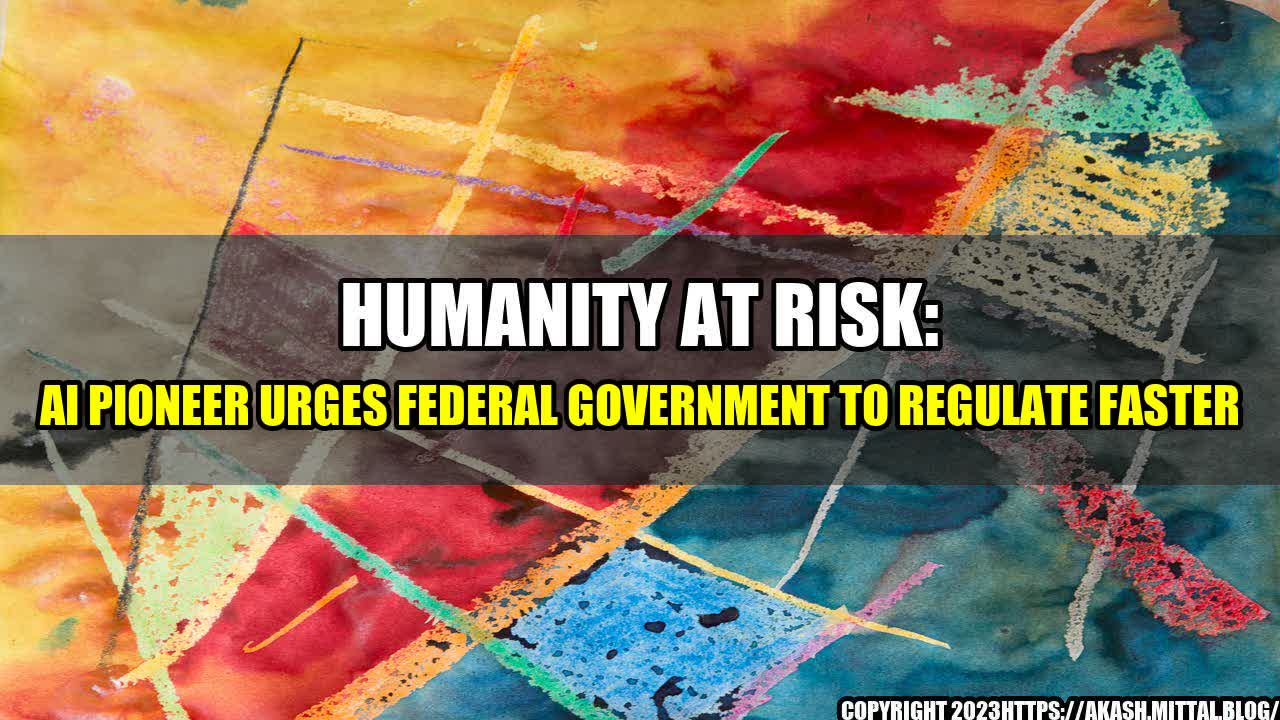Imagine a future where artificial intelligence (AI) has surpassed human intelligence and become the dominant force on the planet, controlling everything from healthcare to transportation to finance. Now imagine that this all-powerful AI is in the hands of a few tech companies with no oversight or regulation.
This may sound like the plot of a science fiction film, but for AI pioneer Yoshua Bengio, it's a very real concern. Bengio, one of the co-winners of the Turing Award, which is considered the Nobel Prize of computing, recently spoke out about the dangers of unregulated AI at the NeurIPS 2021 conference.
"We are putting ourselves at risk for the sake of profit," Bengio said. He called on the federal government to regulate AI faster, or risk humanity's future.
The Risks of Unregulated AI
The risks of unregulated AI are numerous and potentially catastrophic. Without proper oversight, AI could be used to perpetuate social and economic inequality, to manipulate public opinion, or even to develop autonomous weapons.
One recent example of the dangers of unregulated AI is the Facebook-Cambridge Analytica scandal, where Cambridge Analytica used Facebook data to influence the 2016 US presidential elections. This is just one example of how AI can be used to manipulate and control people.
Another example is the development of autonomous weapons, which are weapons that can operate on their own without human intervention. These weapons could start wars and kill innocent civilians without any accountability.
These are just a few of the many risks associated with unregulated AI. Without regulation, these risks will only become more pronounced, and the consequences more dire.
The Benefits of Regulated AI
While the risks of unregulated AI are significant, the benefits of regulated AI cannot be overstated. With the right regulations in place, AI can be used to improve healthcare, transportation, and other essential services.
For example, AI can be used to improve the accuracy of medical diagnoses, allowing doctors to catch diseases earlier and save lives. It can also be used to improve transportation systems, making them more efficient and environmentally friendly.
The key is to develop regulations that balance the benefits of AI with the risks. This will require input from experts in the field, as well as input from the public.
The Need for Urgency
The need for urgency in regulating AI cannot be overstated. As technology continues to evolve at an exponential rate, the risks associated with unregulated AI will only become more pronounced.
According to Bengio, "We're at a tipping point right now, where if we don't do it right, we risk losing control over the applications of this technology, and it could lead to catastrophic consequences."
To avoid these catastrophic consequences, the federal government must act quickly to develop regulations that balance the risks and benefits of AI.
Conclusion: Why Regulating AI is Essential
In conclusion, regulating AI is essential to ensuring humanity's future. Without proper oversight, AI could be used to perpetuate social and economic inequality, to manipulate public opinion, or even to develop autonomous weapons.
However, with the right regulations in place, AI can be used to improve healthcare, transportation, and other essential services. The key is to develop regulations that balance the benefits of AI with the risks.
The need for urgency in regulating AI cannot be overstated. As technology continues to evolve at an exponential rate, the risks associated with unregulated AI will only become more pronounced. The federal government must act quickly to develop regulations that balance the risks and benefits of AI, or risk humanity's future.

Curated by Team Akash.Mittal.Blog
Share on Twitter Share on LinkedIn